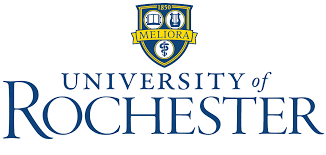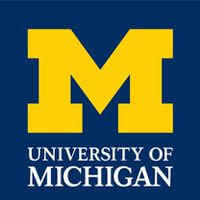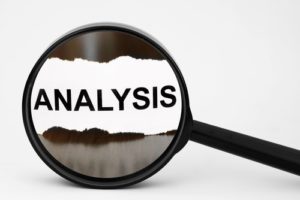Statistics involves the collection, analysis, and interpretation of data. Statisticians who are sought after in various disciplines are responsible for solving economic, political, ecological, medical, or social issues through significant data.
They may handle cancer research, analyze statistical data for the improvement of Internet search engines, and determine unemployment rates to aid the government in the allocation of resources.

Statisticians do valuable work because governments and industries rely heavily on statistics in their decision-making process.
Career opportunities also appear to be endless in this particular field. Because statistical modeling applies to various subject areas, statisticians are present in every industry.
An online Ph.D. in Statistics may open doors for career prospects if the interest lies in providing research specifically for the government or corporate decision-making process.
Students become adept at using the most updated, advanced strategies for the analysis of data in businesses, organizations, academics, and the government. They may also be trained for specialized areas in statistics, teach in the academy, or conduct research.
Ph.D. Stat students get sufficient training in applied and theoretical statistics. Students can choose to specialize based on their areas of interest and complete a dissertation.
This online program also has a goal of equipping graduates to either proceed with academic research in various universities and colleges or fill advanced research positions in government agencies and corporations.
Best Doctor of Statistics
University of Pennsylvania Wharton School

Program Standouts:
The Wharton School’s Doctor of Philosophy in Statistics is designed to provide students with a foundation and ability to engage in both applied problems and cutting-edge theory.
A wide variety of fields such as finance, marketing, and public policy as well as biostatistics within the Medical School and computer science within the Engineering School come together at Wharton to give Ph.D. students in statistics diverse opportunities for applying statistical knowledge.
Campus Location: Philadelphia, Pennsylvania
Accreditation: Middle States Commission on Higher Education
Course Sample:
- Bayesian Statistical Theory and Methods
- Probability Theory
- Stochastic Processes
- Statistical Methodology
Degree Outcomes: Graduates of the Statistics PhD at The Wharton School often take positions in academia, government, financial services, and bio-pharmaceutical industries.
LEARN MORE ABOUT THE WHARTON SCHOOL’S STATISTICS PHD PROGRAM
Harvard University Business School

Program Standouts:
The Ph.D. in Statistics at Harvard University Business School is one of the top statistics degree programs in the country. Unique aspects of the program include integration and balanced training throughout teaching, research, and career development. Research is encouraged throughout the program in both theoretical and applied statistics.
Faculty members have been research leaders in a variety of topics including statistical inference, statistical computing, Monte-Carlo methods, causal inference, stochastic processes, and others.
All faculty members are also involved in personal research that applies to a wide variety of fields giving students rare opportunities for collaboration with some of the top statisticians in the country.
Campus Location: Cambridge, Massachusetts
Accreditation: New England Commission of Higher Education
Course Sample:
- Law
- Astrostatistics
- Parametric Modeling
- Networks
- Design
Degree Outcomes: Some unique courses offered in the Ph.D. in Statistics degree program at Harvard prepare students in a special way for life after graduate school.
These courses are geared toward teaching the basic skills necessary to teach statistics, as well as statistics communication and generic skills necessary for problem-solving abilities, making Harvard Ph.D. in Statistics graduates some of the best equipped in the country for successfully pursuing careers.
LEARN MORE ABOUT THE PHD IN STATISTICS AT HARVARD UNIVERSITY
University of Rochester

Program Standouts:
The Doctorate in Statistics at the University of Rochester applies “statistics” broadly across specializations in biostatistics, probability, statistical theory and analysis, and interdisciplinary areas. Coursework in the program has three concentrations:
- Probability,
- Inference,
- and Data Analysis.
Students beginning the program can expect to spend time in their first three years taking formal courses. The rest of their time in the program will be spent on reading and research.
Campus Location: Rochester, New York
Accreditation: Middle States Commission on Higher Education
Admissions Requirements:
- Online Admissions Application
- Statement of Purpose
- Copy of Transcripts
- 3 Letters of Recommendation
- Official GRE Scores
- English Language Test Scores for International Students
Course Sample:
- Probability Theory
- Statistical Inference I
- Biostatistical Methods I
- Introduction to Statistical Computing
- Ethics in Research
Degree Outcomes: According to the University of Rochester PhD in Statistics website, “prior to completion of the PhD, most students have some publications underway, including some work related to their dissertation research, possibly other methodological work done in collaboration with other members of the faculty, and often some applied papers with scientific researchers in other fields.”
LEARN MORE ABOUT THE PHD IN STATISTICS AT THE UNIVERSITY OF ROCHESTER
University of North Carolina – Chapel Hill

Program Standouts:
The Ph.D. Program in Statistics at the University of North Carolina – Chapel Hill grants students a broad base of information in applied statistics, theoretical statistics and probability, and other advanced topic courses.
The research that doctoral students pursue ranges from applied statistics to theoretical probability. Students are also involved in interdisciplinary research with faculty members and other students.
Campus Location: Chapel Hill, North Carolina
Accreditation: Southern Association of Schools and Colleges Commission on Colleges
Admissions Requirements:
- Application Fee
- Transcripts
- Letters of Recommendation
- Standardized Test Scores
- Statement of Purpose
- Resume/CV
- Community Standards Questions
- Supplemental Program Information
Course Sample:
- Applied Statistics
- Theoretical Statistics
- Probability
Degree Outcomes: According to the University of North Carolina website, “the breadth and depth of the program has served graduates well in their subsequent careers in academia, industry and government.”
LEARN MORE ABOUT THE PHD IN STATISTICS AT THE UNIVERSITY OF NORTH CAROLINA – CHAPEL HILL
Stanford University

Program Standouts:
The Ph.D. program in Statistics at Stanford University is one of the top statistics programs in the nation. The degree program consists of 135 units of study as well as a dissertation and oral examination.
First-year students participate in the core program and show acceptable performance in at least two core areas by the end of the first year. Breadth requirement capability by the end of the second and third year must be satisfied with the thesis proposal meeting successfully completed by the end of the third year.
A dissertation draft and passing grade on the university oral exam by the end of the fourth and fifth year will see the successful completion of the Ph.D. in Statistics.
Campus Location: Stanford, California
Accreditation: Western Association of Colleges and Schools Commission on Colleges
Admissions Requirements:
- Application Form
- Statement of Purpose
- Biostatistics
- Transcripts/GPA
- GRE Scores
- TOEFL Scores
- Letters of Recommendation
- Resume
Course Sample:
- Theory of Statistics
- Applied Statistics
- Theory of Probability
Degree Outcomes: Stanford’s Career Center is available to all graduates from Stanford University. Graduates of the PhD in Statistics can expect to successfully enter a career in Intelligence, Research and Biostatistics.
LEARN MORE ABOUT THE DOCTORAL DEGREE IN STATISTICS AT HARVARD UNIVERSITY
University of Connecticut

Program Standouts:
The Department of Statistics at the University of Connecticut offers one of the top Doctorate in Statistics degree programs. Founded in 1962, the Department is one of the major statistics departments in New England.
The core faculty of 20 professors teach and research topics that cover nearly all major statistical specializations. The department has also received national and international recognition in graduate research and education.
Campus Location: Mansfield, Connecticut
Accreditation: The University of Connecticut is accredited by the New England Commission of Higher Education, 3 Burlington Woods Drive, Suite 100, Burlington, MA 01803-4514
Admissions Requirements:
- Admissions Application
- Statement of Purpose
- Copy of Transcripts
- 3 Letters of Recommendation
- Official GRE Scores
- English Language Test Scores for International Students
Course Sample:
- Mathematical Statistics
- Applied Statistics
- Design of Experiments
Degree Outcomes: Graduates with a Doctoral degree in Statistics from the University of Connecticut have found “excellent positions in academics, government, and industry.”
LEARN MORE ABOUT THE DOCTOR OF STATISTICS DEGREE AT THE UNIVERSITY OF CONNECTICUT
University of Washington

Program Standouts:
The University of Washington’s Department of Statistics has a high reputation for excellence. Established in 1979, the Department includes a broad area of study specialties and dozens of topics including both the theory and methodology of statistics.
The University of Washington Statistics Department also has close contact and joint research interaction with many local departments and companies.
Campus Location: Tacoma, WA
Accreditation: Northwest Commission on Colleges and Universities
Admissions Requirements:
- Admissions Application
- Resume/Vitae
- Statement of Purpose
- Copy of Transcripts
- 3 Letters of Recommendation
- Personal Statement
- Optional Official GRE Scores
- English Language Test Scores for International Students
Course Sample:
- Statistical Methods for Survival Data
- Data Analysis and Reporting
- Advanced Theory of Statistical Inference
Degree Outcomes: Graduates with a Doctoral Degree in Statistics from the University of Washington show a high level of satisfaction not only with their experience at UW but with the ease of entering the Statistics Job Market.
LEARN MORE ABOUT THE DOCTORAL DEGREE IN STATISTICS AT THE UNIVERSITY OF WASHINGTON
Cornell University

Program Standouts:
Studying in the Ph.D. in Statistics degree program at Cornell University grants students a diverse set of skills. These include the ability to collaborate effectively with researchers, as well as formulate, compute, and implement novel statistical models and methods.
Cornell’s Ph.D. alumni, according to the school’s website, “have gone on to high-profile positions in all of academia, industry, and government.”
Campus Location: Ithaca, NY
Accreditation: Middle States Commission on Higher Education
Admissions Requirements:
- College Transcripts
- Two Letters of Recommendation
- Statement of Purpose
- Official GRE Scores
- TOEFL Scores
- Strong Performance in Mathematics
Course Sample:
- Linear Models
- Theory of Statistics
- Asymptomatic Statistics
Degree Outcomes: The Ph.D. in Statistics at Cornell University is designed to prepare students for careers in teaching and research in industry or government or at the University level.
LEARN MORE ABOUT THE PHD IN STATISTICS AND DATA SCIENCE AT CORNELL UNIVERSITY
Columbia University

Program Standouts:
With a history of over 250 years of academic excellence and 87 Nobel Prize Winners, graduate students in the Statistics Department can expect to acquire a degree of high academic standing.
The Ph.D. in Statistics at Columbia is designed to train students in theoretical statistics, applied statistics, and probability. The program is also geared toward collaborative interdisciplinary research.
Campus Location: New York, NY
Accreditation: Middle States Commission on Higher Education
Admissions Requirements:
- Background in linear algebra and real analysis
- Coursework in statistics and probability
- Familiarity with computing and programming is desirable
- Quantitative training
- Background and experience in other scientific disciplines
- Completed Application
Course Sample:
- Statistical Computing
- Applied Statistics
- Probability Theory I-III
Degree Outcomes: According to the Columbia University Graduate Student Handbook, “The Ph.D. program prepares students for research careers in probability and statistics in both academia and industry.”
LEARN MORE ABOUT THE PHD IN STATISTICS AT COLUMBIA UNIVERSITY
University of Michigan

Program Standouts:
The Ph.D. in Statistics at the University of Michigan is diverse and flexible. The program allows students to pursue a wide range of studies from interdisciplinary research to statistical methodology and probability theory.
Students in the Ph.D. program begin the program by taking foundational courses, transition into research, and culminate their studies with the most important component of the program – the dissertation.
Campus Location: Ann Arbor, Michigan
Accreditation: Higher Learning Commission
Admissions Requirements:
- Application Form
- Recommender Names and Email Addresses
- Transcripts
- Statement of Purpose
- Personal Statement
- Resume or CV
5 Core PHD Study Areas:
- Methods
- Practice
- Statistical Theory
- Probability
- Computing
Degree Outcomes: The flexibility and diversity of the study focus areas in the PhD program at the University of Michigan grant graduates the opportunity to seek specialized career options that correspond to their interests.
LEARN MORE ABOUT THE PHD IN STATISTICS AT THE UNIVERSITY OF MICHIGAN
Iowa State University

Program Standouts: The Ph.D. program in Statistics at Iowa State University includes four courses in one of four concentration areas:
- biostatistics,
- probability/mathematical statistics,
- data science,
- or actuarial science/financial mathematics.
Coursework in seminars or other departments can include specializations such as using electronic digital computing equipment or learning non-English language skills.
Campus Location: Ames, Iowa
Accreditation: Higher Learning Commission
Admissions Requirements:
- Online Application
- 3 Letters of Recommendation
- Records/Transcripts
- GRE Scores
- TOEFL Scores
Course Sample:
- Statistical Consulting
- Reading in Statistics
- Statistical Inference
Degree Outcomes: As part of a top Statistics Program in the country, Iowa State’s Ph.D. in Statistics will award graduates the opportunity to successfully pursue a degree in their specialized area of statistics, either in research or education.
LEARN MORE ABOUT THE PH.D. IN STATISTICS AT IOWA STATE UNIVERSITY
Frequently Asked Questions
Why should I consider taking an online Ph.D. in Statistics (Ph.D. Stat) program?

There are numerous reasons to earn an online Ph.D. Stat degree. First and foremost, it can aid the student in career advancement. According to the U.S. Bureau of Labor Statistics (BLS), there are excellent opportunities for career advancement for people with master’s or doctoral degrees.
An online Ph.D. may also lead to greater freedom, as statisticians with a post-graduate degree can design their work independently. A doctoral degree in Statistics is considered an exciting scholastic challenge that allows students to take on various research opportunities while connecting with fellow experts. It is also ideal for statisticians seeking to expand their knowledge through research and teaching fellowships continuously.
There may be numerous challenges to take into consideration when earning a Ph.D. Stat degrees, especially with work or family obligations, get in the way of pursuing a post-graduate degree.
The entire program takes about four to five years to complete. While the prospect offers a tremendous opportunity, Ph.D. in Statistics degrees that are earned online are quite uncommon.
What are the requirements for admission to an online Ph.D. Statistics program?

The prerequisites for this particular degree program vary based on the academic institution. Commonly, Ph.D. Stat programs require many semesters of linear algebra, calculus, and mathematical statistics classes. Many of the courses also expose students to computer programming and related subjects.
In general, students pursuing an online Ph.D. Statistics degree first needs to earn a master’s degree in the fields of mathematics or computer science. Students who lack the requirements before entering this online Ph.D. program can take advantage of the remedial prerequisite courses offered every summer.
However, some remedial courses in online Ph.D. Stat programs require a high GRE score. Students must ace comprehensive examinations involving methods and theories relating to the discipline. Other programs require students to have earned ample experience in the use of statistical packages such as SPSS or SAS before being accepted into graduate school.
Application requirements may differ from one program to another beyond the typical undergraduate and graduate transcripts. Usually, doctorate candidates for Statistics need to meet a minimum GPA of at least 3.0 and should have earned a bachelor’s degree in mathematics, statistics, or any related field.
What courses can be taken in an online Ph.D. Stat program?
An online Ph.D. Stat’s course curriculum does not wander far from that of a traditional, on-campus program. The types of courses to be completed, however, depend on the student’s area of specialization and may differ based on the graduate school and the program structure.
There is typically a core curriculum with additional courses and examinations. A consulting seminar or project may also be required along with a dissertation or, in some cases, a comprehensive exam.

The coursework usually includes the following:
- Statistical Analysis
- Asymptotics
- Bootstrapping
- Decision theory
- Multivariate analysis
- Sequential analysis
- Time series
- Stochastic processes and models
- Bayesian statistics
- Statistical consulting
- Probability theory
- Theoretical statistics
- Mathematical statistics
- Applied statistics
- Mathematics of finance
- Statistical Methods in Bioinformatics
- Applied Algebra
- Statistical Genetics
What are the career pathways, employment, and salary rates for a Ph.D. Stat degree holder?

The U.S. Bureau of Labor Statistics (BLS) reports that, with a 30% increase between 2022 to 2032, the job growth rate for statisticians is higher than the median rate for all other occupations.
Doctorate holders with experience in fields such as computer science, engineering, or biology are most likely to land advanced work positions. Government agencies, commercial businesses, and pharmaceutical companies all have a high demand for statisticians.
The federal government, meanwhile, employed approximately 15% of statisticians in the United States in 2014 and at least 20% in 2010. Other top hiring sectors include scientific and development services at 16%, colleges, universities, and professional schools at 11%, the state government at 11%, and insurance carriers at 7%. In May 2022, it was recorded that the median annual wage for statisticians was $112,110.
What schools offer a Ph.D. Stat program?

Ph.D. Stat programs are rarely offered as a fully 100% online degree. It is, however, delivered in hybrid format by the country’s top universities, including:
- University of Pennsylvania Wharton,
- Harvard University Business School,
- University of Rochester,
- University of North Carolina-Chapel Hill,
- Stanford University.
The following, on the other hand, are some of the best schools that offer Ph.D. in Statistics programs in on-campus or brick-and-mortar format only:
- University of Connecticut,
- University of Washington,
- Cornell University,
- Columbia University,
- University of Michigan,
- Iowa State University.
Earning a Ph.D. Stat online may save you time and allow greater access to significant resources. Along with the increased growth of data collection, the growing importance of cybersecurity, and the rising need for new software, a significant number of well-experienced statisticians has become more in demand.
Is earning a Doctor of Statistics degree worth my time and expense?
The answer to this question will depend on your circumstances and goals. A Doctor of Statistics degree is a highly specialized degree that can be beneficial for those looking to advance their career in the field of statistics.
It can also provide a valuable foundation for those pursuing a career in data science or research. Ultimately, it is up to you to decide if the time and expense associated with earning a Doctor of Statistics degree are worth it for your own circumstances.
